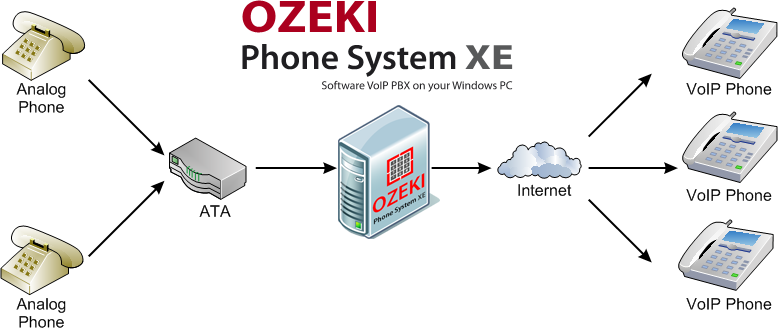VoIP Explained
Would you like to get ahead of the competition of your business? Or would you like to cut down on your communication expenses? Do you have to make lots of international calls? Then you should be interested in our article on VoIP (see definition later). You can read here about protocols, especially Internet Protocol, Voice over Internet Protocol and how it works. You will also be able to learn about what it could do for your business.
Transmission of data among computers is regulated by a set of rules, called protocols. Data must be sent compressed into data packets whenever several computers are connected. These packets must have an address, just like a letter must have an address to be sent to the appropriate person via the postal system.
Data packets are transmitted via the Internet under the direction of the Internet Protocol (IP), and that is why each computer that is connected to the Internet needs a unique IP address so that it can send and receive data compressed into data packets.
VoIP (acronym for Voice over Internet Protocol) is a technology used by the Ozeki Phone System, providing the transmission of multimedia sessions and voice communications over IP (Internet Protocol) networks (Figure 1).

How it works
(see Figure 1):Analog phone signals must be turned into digital signals to be sent over the Internet. VoIP phones can do it by themselves, other phones might need an ATA, an Analog Telephone Adapter, which can convert analog and digital data, to do it. VoIP is based on the SIP system, so any SIP compatible device can make a call to any other without a PC.
For example if you have an IP phone (it does the same as an ATA, but it is a phone, not an adapter) all you need to do is to plug it in to the Internet connection, configure it and then call the person you wish to talk with. Then your voice will be sent in data packets over the Internet to the recipient, where it will be decoded back into a voice signal. Compressing these packets into codecs make transmission faster, but it can be made in several ways, so each codec has different bandwidth requirements and voice quality due to their various ways of compression and bitrate.
Why it would be worth using VoIP services in your business:
If you intend to grow your business and enhance its profitability, the telecommunications of your company should be developed, so forward thinking is a key to the success of your business. Now that VoIP has given you the opportunity to expand the area you can reach, you can get ahead of your competition. Land lines do offer reliable communication systems, but imagine a system just as reliable, but faster.
If you made the decision to give your business a better chance against the competition of our modern world, then the best choice is the Ozeki Phone System. How can I state this so confidently? Because the Ozeki Phone System is truly among the most powerful systems, and it also gives you easy-to-manage interfaces, multifunctionality, high quality and high expertise.
Check out the following articles for more information:
